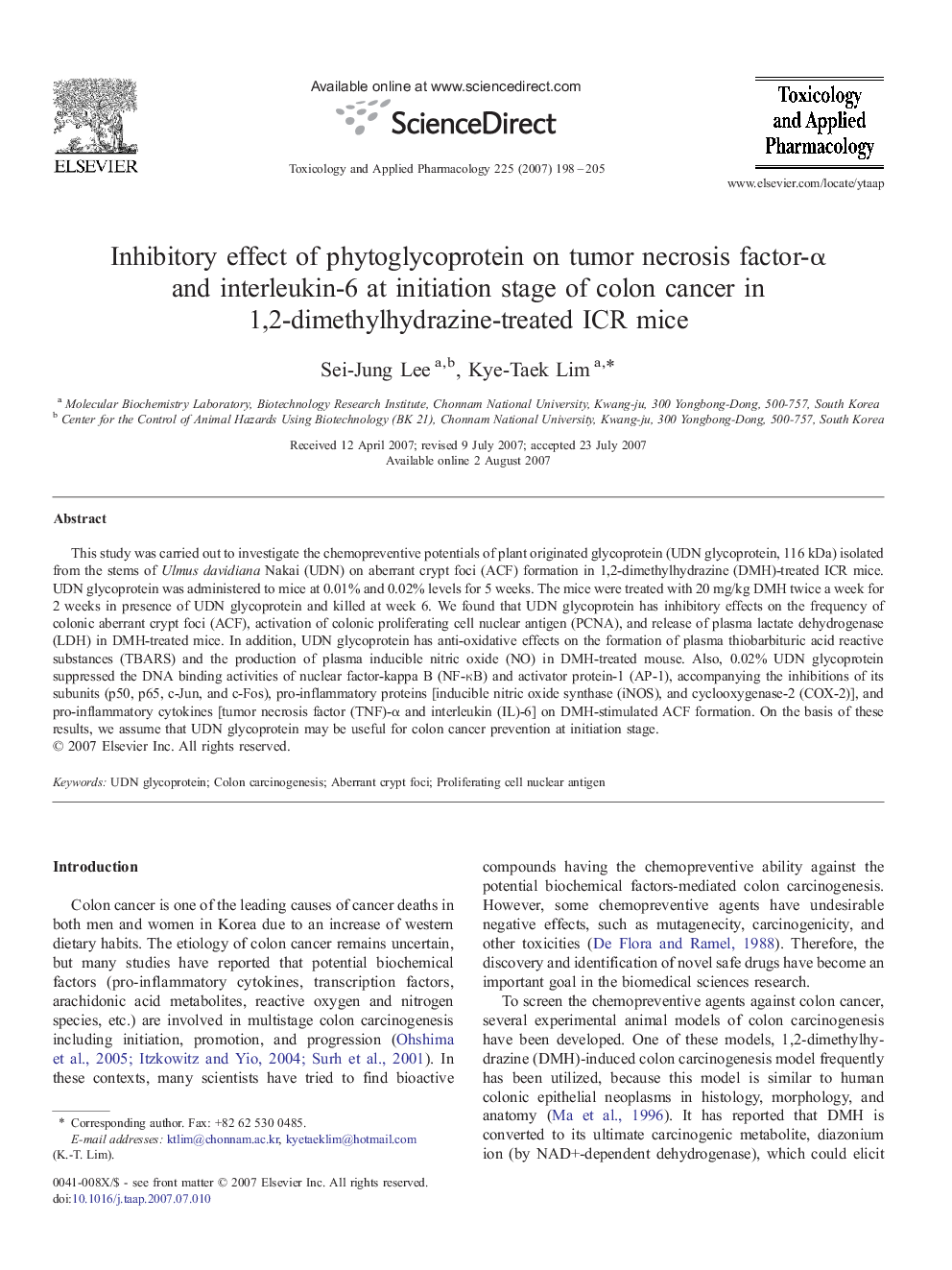| Article ID | Journal | Published Year | Pages | File Type |
|---|---|---|---|---|
| 2571580 | Toxicology and Applied Pharmacology | 2007 | 8 Pages |
This study was carried out to investigate the chemopreventive potentials of plant originated glycoprotein (UDN glycoprotein, 116 kDa) isolated from the stems of Ulmus davidiana Nakai (UDN) on aberrant crypt foci (ACF) formation in 1,2-dimethylhydrazine (DMH)-treated ICR mice. UDN glycoprotein was administered to mice at 0.01% and 0.02% levels for 5 weeks. The mice were treated with 20 mg/kg DMH twice a week for 2 weeks in presence of UDN glycoprotein and killed at week 6. We found that UDN glycoprotein has inhibitory effects on the frequency of colonic aberrant crypt foci (ACF), activation of colonic proliferating cell nuclear antigen (PCNA), and release of plasma lactate dehydrogenase (LDH) in DMH-treated mice. In addition, UDN glycoprotein has anti-oxidative effects on the formation of plasma thiobarbituric acid reactive substances (TBARS) and the production of plasma inducible nitric oxide (NO) in DMH-treated mouse. Also, 0.02% UDN glycoprotein suppressed the DNA binding activities of nuclear factor-kappa B (NF-κB) and activator protein-1 (AP-1), accompanying the inhibitions of its subunits (p50, p65, c-Jun, and c-Fos), pro-inflammatory proteins [inducible nitric oxide synthase (iNOS), and cyclooxygenase-2 (COX-2)], and pro-inflammatory cytokines [tumor necrosis factor (TNF)-α and interleukin (IL)-6] on DMH-stimulated ACF formation. On the basis of these results, we assume that UDN glycoprotein may be useful for colon cancer prevention at initiation stage.
